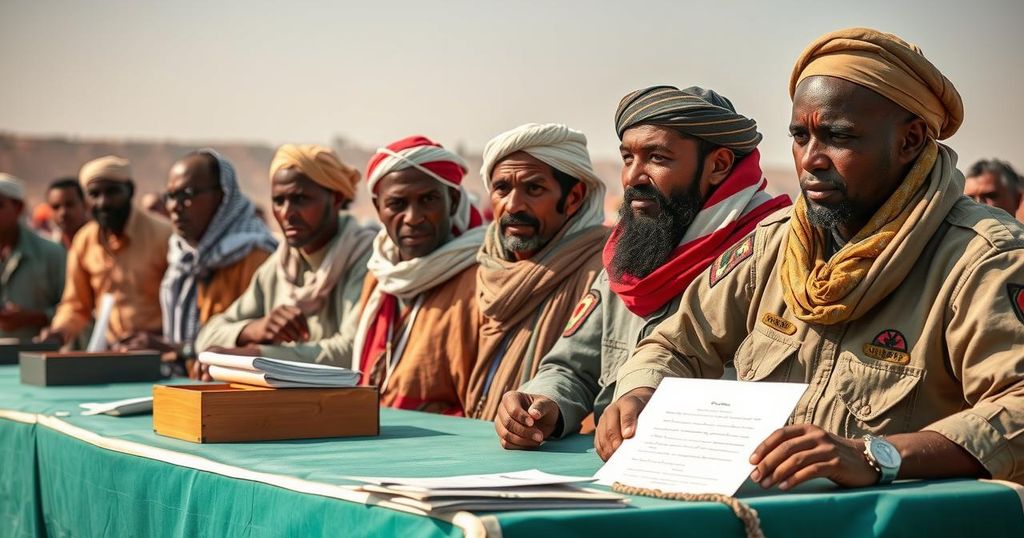Chad’s Military and Nomadic Communities Participate in Controversial General Elections

Chad’s military and nomads voted in general elections deemed pivotal for democratic transition, despite a boycott from opposition parties claiming electoral malpractice. Approximately 45 percent of the military and nomads voted on December 29, amid ongoing national security threats and humanitarian challenges. President Mahamat Deby aims to reform the governance structure as opposition parties continue to call for a boycott, hindering the legitimacy of the electoral process.
On December 29, members of Chad’s military and nomadic communities participated in the ongoing general elections, which the government has characterized as significant for the nation’s transition to democracy. However, the elections are marred by a boycott from opposition parties, which claim the process lacks integrity. Opposition groups, particularly the Transformers party, urged citizens to stay home and refrain from voting, deeming the elections a farce. Despite this, early turnout figures indicated that approximately 45 percent of both 200,000 nomads and 45,000 soldiers had exercised their right to vote by midday.
Voting commenced under tight security arrangements, particularly for the military, who cast their votes in barracks near the capital N’Djamena. Senior election official Ousmane Houzibe affirmed that the voting process for military personnel was proceeding without incident. Parallel to this, nomads expressed their hopes to elected representatives to address the pressing challenges posed by climate change, which have severely affected their livelihoods. These challenges include livestock loss and tensions with sedentary farming communities.
The elections occur amid significant national issues such as the persistent threat from the jihadist group Boko Haram, a recent termination of military cooperation with France, and allegations of interference in Sudan’s conflict. President Mahamat Idriss Deby Itno, who succeeded his father in 2021, seeks to present these elections as part of a broader agenda for democratic reform, despite opposition claims of electoral malpractice. It is noteworthy that Chad has not held legislative elections since 2011, with previous attempts hindered by various crises.
Chad, a country situated in the Sahel region, has been under prolonged military rule following the death of longtime leader Idriss Deby Itno. His son, Mahamat Deby, currently holds office and aims to transition the nation towards democracy. However, his government faces significant challenges, including internal opposition, threats from extremist groups, and humanitarian crises exacerbated by climate change. The legitimacy of recent elections has been challenged by various political factions, complicating the nation’s democratic aspirations. As Chad navigates this complex landscape, the role of military influence and the participation of marginalized groups, such as nomadic tribes, become critical points of consideration.
In summary, the general elections in Chad, characterized by military and nomadic participation, reflect ongoing tensions between the government and opposition parties, complicating the nation’s path towards democracy. Despite calls for boycotts from opposition leaders, significant voter turnout was reported, indicating a willingness among certain communities to engage in the democratic process. However, the backdrop of insecurity, economic strain, and environmental challenges poses ongoing risks for Chad’s stability and governance.
Original Source: www.barrons.com







